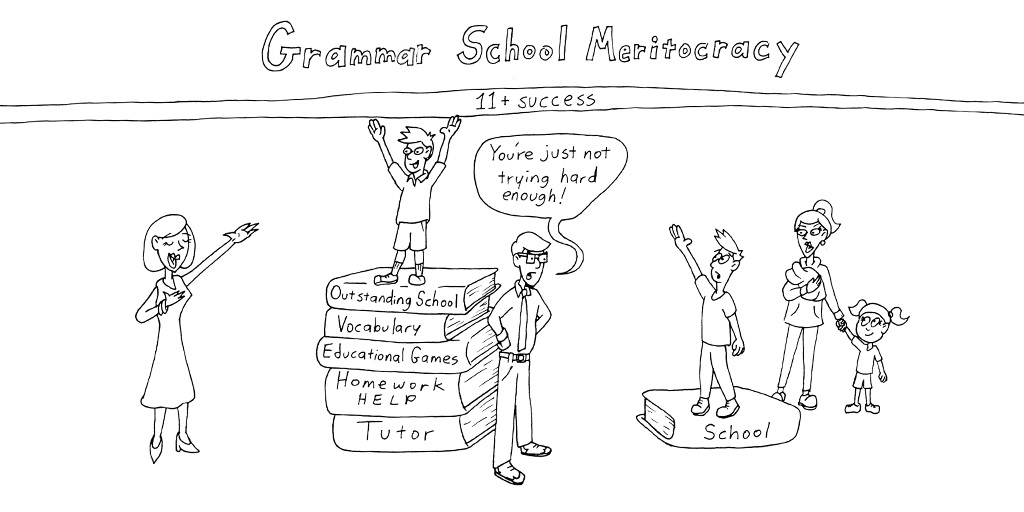In England, educational opportunities are unequal. They depend far too much on the economic and social circumstances of a child’s family and too little on the child’s own talent, motivation and application.
The causes of this inequality are deep-seated. To create a new and fairer system will require many changes in unhelpful attitudes and practices. It is unrealistic to believe that such a radical transformation can be accomplished by a single instrument of reform. We believe that a more promising approach is for the supporters of a fairer system to promote a series of initiatives designed to remove each barrier to equality.
Our contribution to this process is to launch a campaign against the 11+ examination called Times up for the Test. The 11+ is a shameful relic of the unfair and discredited system of education which was abandoned in most of Britain over fifty years ago. Time is up for the 11+ and this out-moded and damaging examination should now be abolished.
The damage caused by grammar schools
Grammar schools and the 11+ are often described by their supporters as doing nothing but good. This propaganda disregards the distress which the 11+ inflicts on children and their parents, and ignores the damage which grammar schools cause to neighbouring schools and to local communities.

Grammar schools are sometimes praised for increasing social mobility. This is demonstrably false. A mountain of research has found that grammar school pupils typically come from affluent families; a significant number even come from fee-paying preparatory schools.
Grammar schools do not enhance the life-chances of children from poor families because, judged by the low number of grammar school pupils who are eligible for free school meals, few children from poorer backgrounds actually attend grammar schools. The truth is that, far from aiding social mobility, grammar schools consolidate privilege and reinforce the inequalities of the English class system.
Supporters of grammar schools frequently allege that they provide education which is superior to that provided by comprehensive schools. The evidence proves otherwise but the assertion is so frequently made that it tends to damage the reputation of nearby schools and of comprehensive education in general.
Some damage is obvious and immediate. Because of the spurious claims that grammars are ‘better’ than comprehensives, grammar schools often seek to suck in children from many miles away. When this happens comprehensive schools in nearby local authorities lose able pupils and cease to be the all-ability community schools which they were designed to be.
Poaching attempts are also made in the year before GCSEs and at the time of sixth form entry when, in an attempt to enhance their figures for academic success, grammar schools offer places to children who are doing well in comprehensive schools. The disruptive effects are significant.
Grammar schools damage the cohesion of local communities by creating unhelpful divisions. Instead of parents and pupils coming together to support the same schools and the same activities, they are artificially divided into two separate groups, intent on benefiting different schools and often acting in competition.
